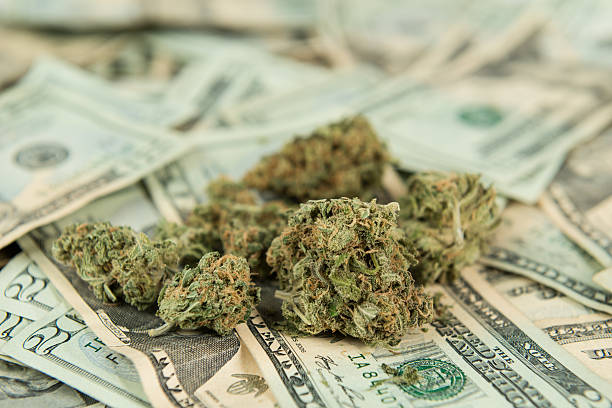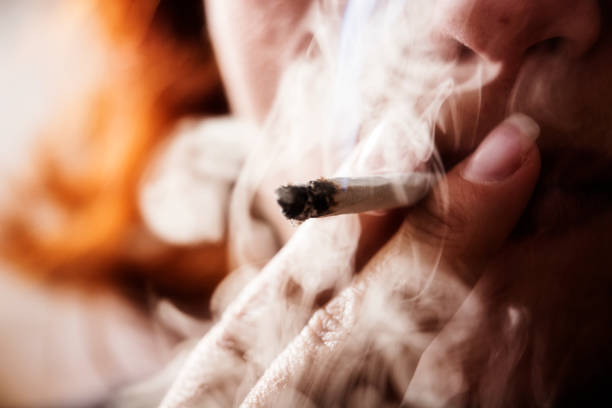

Legalizing cannabis in St. Louis could bring a multitude of benefits to the city and its residents. One major advantage is the potential for increased tax revenue, which could be used to fund important community programs and services. This additional revenue could also help stimulate economic growth and create new job opportunities in the cannabis industry.
Furthermore, legalizing cannabis could help reduce crime rates associated with illegal drug trafficking and distribution. By regulating the sale and consumption of cannabis, law enforcement resources can be redirected towards more pressing issues, making our communities safer overall.
In addition, legalizing cannabis could also have positive effects on public health. With regulated products, consumers can have access to safer options without fear of harmful additives or contaminants found in black-market products. Medical marijuana patients may also benefit from easier access to their medication with less stigma attached.
Overall, legalizing cannabis in St. Louis has the potential to bring about numerous social, economic, and public health benefits that can improve the quality of life for its residents. It is important for policymakers to carefully consider these advantages when making decisions about cannabis legalization in our city.
The potential economic impact of cannabis legalization in St. Louis is a topic that has sparked much debate and discussion among residents, policymakers, and business owners. Proponents of legalization argue that it could bring in significant revenue for the city through taxes and licensing fees, as well as create jobs in the growing cannabis industry.
Legalizing cannabis could also provide opportunities for small businesses to thrive, such as dispensaries, cultivation facilities, and other related industries. This could potentially stimulate economic growth and diversify the city's economy.
On the other hand, opponents of legalization raise concerns about potential negative impacts on public health and safety, as well as the potential for increased drug use among youth. There are also concerns about potential conflicts with federal law and regulations.
Overall, the economic impact of cannabis legalization in St. Louis remains uncertain and would depend on how it is implemented and regulated. It will be important for policymakers to carefully consider all factors before making any decisions regarding this issue.
The global legalization of cannabis has had a profound impact on the industry, sparking significant changes in the way that cannabis is cultivated, distributed, and consumed.. As more countries around the world begin to legalize cannabis for both medicinal and recreational use, the industry has experienced exponential growth and transformation.
One of the most significant impacts of global legalization on the cannabis industry is increased access to new markets.

Posted by on 2024-06-25
In recent years, the cannabis industry has experienced a significant boom, with legalization spreading across various states and countries.. This growth has led to a surge in innovation within the industry, particularly in the development of new cannabis products.

Posted by on 2024-06-25
The future of cannabis consumption methods is a topic that continues to evolve as the legalization of marijuana spreads across the globe.. With more and more states and countries recognizing the benefits of cannabis for medical and recreational use, there is a growing demand for innovative ways to consume this versatile plant.
One of the most popular methods of consuming cannabis today is through smoking.

Posted by on 2024-06-25
The role of technology in shaping the future of the cannabis industry is undeniable.. As the world becomes increasingly digital, technology has played a crucial role in revolutionizing how cannabis is grown, processed, and consumed.
One of the most significant ways that technology is impacting the cannabis industry is through cultivation practices.

Posted by on 2024-06-25
The cannabis market is one that has been rapidly growing and evolving in recent years, with more and more countries around the world legalizing its use for both medical and recreational purposes.. This has opened up a wealth of opportunities for international expansion within the industry.
One of the key factors driving this potential for international expansion is the increasing acceptance and legalization of cannabis in various countries.

Posted by on 2024-06-25
The influence of sustainability practices on cannabis cultivation is profound and far-reaching.. As the legal cannabis industry continues to expand, there is a growing awareness of the environmental impact that traditional cultivation methods can have.

Posted by on 2024-06-25
Diversity and inclusion are crucial components of any workforce, including the cannabis industry.. In recent years, there has been a growing recognition of the importance of creating a diverse and inclusive work environment, not only for ethical reasons but also for practical ones.
One of the key benefits of diversity in the cannabis workforce is that it brings together individuals with different backgrounds, perspectives, and experiences.

Posted by on 2024-06-25
The cannabis industry is constantly evolving, with new trends and innovations emerging all the time.. In order to stay ahead of the game in this fast-paced industry, it's crucial to keep up with these emerging trends and adapt your business strategies accordingly.
One of the most significant trends in the cannabis industry right now is the increasing popularity of CBD products.

Posted by on 2024-06-25
The examination of the social and criminal justice implications of legalizing cannabis is a complex and contentious issue, especially in a city like St. Louis. Proponents of legalization argue that it can lead to increased tax revenue, job creation, and reduced strain on the criminal justice system. However, opponents raise concerns about potential negative impacts on public health, safety, and youth access.
In St. Louis, where racial disparities in drug enforcement have long been a concern, the legalization of cannabis could have significant implications for criminal justice outcomes. Legalization has the potential to reduce arrests and incarceration rates for non-violent drug offenses, particularly among communities of color who have historically been disproportionately affected by marijuana prohibition.
On the other hand, there are concerns that commercialization of cannabis could exacerbate existing inequalities in the criminal justice system. There is also a need to address issues related to expungement of prior marijuana convictions and ensuring equitable opportunities for individuals with previous involvement in the illegal market.
Furthermore, the social implications of legalizing cannabis must also be carefully considered. This includes addressing public health concerns such as substance abuse prevention and treatment, as well as implementing regulations to prevent underage consumption.
Ultimately, the decision to legalize cannabis in St. Louis should involve a thoughtful examination of both the potential benefits and risks associated with such a policy change. It is important to engage with stakeholders from diverse perspectives to ensure that any regulatory framework prioritizes social equity and justice while promoting public health and safety.
Public opinion and political support for cannabis legalization in St. Louis have been evolving rapidly in recent years. As more states across the country move towards legalizing cannabis for both medical and recreational use, residents of St. Louis are also starting to voice their opinions on the matter.
One of the key factors driving this shift is the growing body of research showing the potential benefits of cannabis for various medical conditions, such as chronic pain, epilepsy, and PTSD. This has led many people in St. Louis to view cannabis as a legitimate form of medicine that should be accessible to those who could benefit from it.
Furthermore, there is a growing recognition that the war on drugs has disproportionately impacted communities of color, leading to mass incarceration and social injustice. Many residents of St. Louis see cannabis legalization as a way to address these issues by reducing arrests for nonviolent drug offenses and creating new economic opportunities for marginalized communities.
In terms of political support, several local politicians in St. Louis have come out in favor of cannabis legalization, including Mayor Tishaura Jones and members of the city council. These leaders recognize the potential tax revenue that could be generated from legalizing and regulating cannabis sales, which could help fund vital services like education and healthcare.
Overall, public opinion on cannabis legalization in St. Louis seems to be shifting towards greater acceptance and support. As more research is conducted and more success stories emerge from other states that have legalized cannabis, it is likely that momentum will continue to build for reforming current drug laws in St. Louis.
As we consider the potential legalization of cannabis in St. Louis, it is important to look at how other cities and states have approached this issue.
In places like Denver, Colorado and Seattle, Washington, where cannabis has been legalized for recreational use, there have been both positive and negative outcomes. On one hand, these cities have seen a boost in tax revenue from the sale of cannabis products, which has helped fund various public programs and initiatives. Additionally, many individuals have found relief from medical conditions through the use of cannabis.
However, there have also been challenges associated with legalization. For example, there has been an increase in traffic accidents related to driving under the influence of cannabis in some areas. Additionally, concerns have been raised about the impact of increased cannabis availability on youth usage rates.
Looking at these examples can help inform our approach to legalization in St. Louis. We must carefully consider factors such as regulation, taxation, public health and safety measures, and education campaigns to ensure that any potential legalization is done thoughtfully and responsibly.
Ultimately, by examining the experiences of other cities and states that have legalized cannabis, we can learn valuable lessons that can help guide us as we navigate this complex issue in St. Louis.
Legalizing cannabis in St. Louis is a complex and challenging process that comes with its fair share of obstacles. One major challenge is the stigma attached to cannabis, which has been ingrained in our society for decades. Many people still view it as a dangerous drug, despite growing evidence of its medical benefits.
Another obstacle is the lack of clear regulations and guidelines for implementing legalization. Without proper laws in place, there could be confusion and inconsistency in how cannabis is sold and used in St. Louis. This could lead to issues such as black market sales and unsafe products being distributed to consumers.
Additionally, there are concerns about public safety and health when it comes to legalizing cannabis. Some worry about an increase in impaired driving accidents or underage use if marijuana becomes more readily available. These are legitimate concerns that need to be addressed before full legalization can occur.
Furthermore, there may be resistance from certain groups or individuals who oppose cannabis legalization for personal or moral reasons. Overcoming this opposition will require education, open dialogue, and perhaps compromises to ensure that everyone's concerns are taken into account.
Overall, while there are certainly challenges and obstacles to implementing cannabis legalization in St. Louis, there is also potential for great benefits such as increased tax revenue, job creation, and improved access to alternative medicine options for residents. By addressing these challenges head-on and working together as a community, we can move towards a more inclusive and progressive future for cannabis policy in St. Louis.